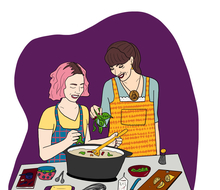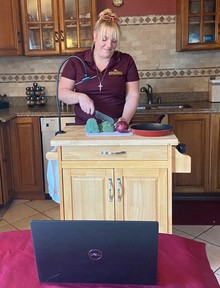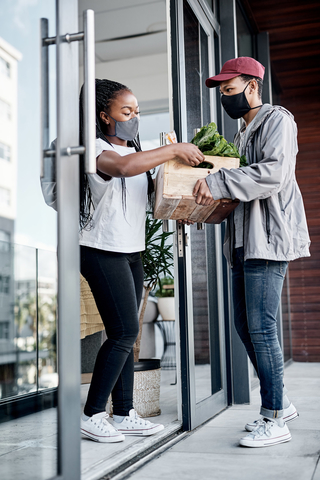From nutrition programs to youth and families, to agriculture and leadership, participants find strategies that bring them to their own optimum state of mental health.
University of Minnesota Extension nutrition classes aren’t only good for the body. Case in point, with names changed for privacy:
Tina felt hopeful hearing her mother, Sally, get excited about nutrition classes at her chemical dependency treatment center. She didn’t feel ready to visit her mother yet, not trusting her, but Sally sent Tina a favorite soup recipe from class. Later, they each made the soup and discussed it on the phone; it was the first time they had talked without fighting or crying in years. Six months later, the mother and daughter cooked together in person. Traumatic memories still came up, but so did questions about herbs. They could finally visit each other without the soup — or the conversation — boiling over.
The story above comes from Joyce McGee-Brown, community nutrition educator in the Expanded Food and Nutrition Education Program (EFNEP). “We connect and collaborate with recovery centers like where we met this woman who was not even allowed to see her grandchildren because of her lifestyle,” says McGee-Brown. “She came back to class so excited that she could now see her daughter and grandchildren, and it all started with sharing a recipe.”
“We have so many stories of how cooking has mended relationships,” says Christine Navarro, EFNEP educator. “When you’re cooking together, you’re talking.”
Mental health in Extension education
Navarro’s class in collaboration with McGee-Brown takes place in the metro area at Restoration Community & Counseling Services.
Mental illness and mental health are not opposite ends of a spectrum, says Cari Michaels, public health educator with Extension’s Children Youth & Family Consortium (CYFC).
“When people think of mental health, they are often thinking of mental illness, or a mental crisis,” says Michaels. “In reality, people both with and without mental illness can get help in reaching their own optimum state of mental health. They can flourish.”
Mental health awareness became woven into Extension research and education when the CYFC, started in 1991, joined Extension in 2011. Since then, CYFC has studied some of the most critical community-level risks to mental wellbeing — topics like parental incarceration, lack of understanding about transgender youth, bullying and mental health issues in early childhood. Deep dives on these topics inform work across many Extension programs.
“We are not clinicians, rather educators that are trained in recognizing and referring, listening and responding,” says Lynne Borden, Extension associate dean and head of Extension’s CYFC. “The majority of Extension educators live and work in Greater Minnesota, so we have partnerships statewide.”
A partnership with the University of Minnesota College of Pharmacy is bringing a new community-based approach to opioid addiction and recovery. Educators in crop and livestock agriculture have been trained to recognize signs of suicide risk.
Extension integrates mental health into social and emotional learning training for youth workers, leadership education, and family financial resiliency. Overall, these activities help Minnesota families and communities flourish.
Mental health and nutrition
“Alcohol can make the ‘on’ button get stuck for sugar cravings,” says Navarro. “When a recovering alcoholic learns why they are bingeing on pop and candy, they can see that eating a banana can help and also provide the potassium that has been depleted by the disease. That’s just one example. Understanding the nutrition science takes away the shame and promotes health.”
Navarro, who has a degree in family social science, incorporates recovery tips into the classes, currently taught online. Other Extension educators are starting a similar session in St. Louis County.
Vail Place, a nonprofit organization that provides community-based recovery services for adults with serious mental illnesses, is another collaborating organization. “Our members really relied on our clubhouse, but during the pandemic they are at home planning meals around items they can get at a food bank,” says Eric Lowe, Vail Place support specialist. “Extension educators teach them how to take a packaged meal like macaroni and cheese and turn it into something healthier while getting comfortable in the kitchen.”
A virtual cooking demonstration with the Uptown Clubhouse Vail Place members involved Extension educators sharing MyPlate food groups and knife skills while making stews. “Members asked questions and tried some unfamiliar spices” says Lowe. “They opened up, seeing that they were being treated with respect.”
Learn more about mental health.
Self-care beyond self
During the pandemic business closures, did you give a housemate a haircut? Check on an elderly neighbor who lives alone? Self-care is often marketed as something we can buy ourselves, but it isn’t all about spa treatments and cozy slippers.
“Collective care — focusing on the health and wellbeing of others — helps strengthen both individuals and communities,” says Chelsea Williams, Extension health and nutrition educator. “Collective care is a part of self-care.”
Williams says Black, Indigenous, and People of Color (BIPOC) communities have traditions of collective care brought about by threats to their survival. It can be practiced anywhere people appreciate the value of knowing and caring about one another.
Take that elderly neighbor you checked on. She’s always sharing the history of the neighborhood with its youngest residents, building pride in — and an understanding of — where they live. Her knowledge is their power. When you and others in her circle join together to bring her food, or invite her to participate in a virtual gathering, you are caring for your whole neighborhood — and for yourselves.
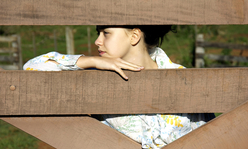
Rural Community Stress: Understanding Risk and Building Resilience
The Children’s Mental Health eReview is Children, Youth & Family Consortium’s free and accessible online publication that integrates research and practice expertise to improv
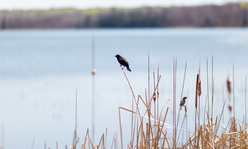
Taking care of yourself under stress
Managing stress begins with self-care. Fortunately, there are many things you can do at home and on your own schedule to support your mental health.


